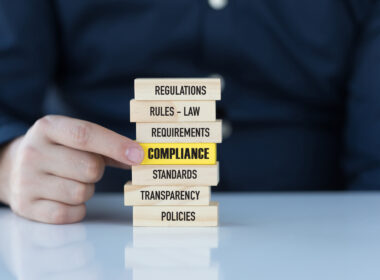Practising law in New South Wales is increasingly competitive. Year after year (from 1997 to 2021), the legal profession has continued to grow at a steady average rate of 7%.[1] As at October 2021, there were 7,195 private law practices operating across the state, with a majority (61%) being sole practitioner practices. [2] This is a 4% growth from 2020.[3] 68% of legal practitioners in New South Wales were in private practice as at October 2021.
In a competitive legal market, being able to distinguish your skills and expertise from other practitioners is an important first step to building your reputation and the reputation of your law practice, and while there are many vendors out there claiming expertise in branding, advertising and marketing strategies for law practices, legal practitioners are reminded that they are personally responsible for the obligations set out at Rule 36 of the Australian Solicitors’ Conduct Rules (ASCR 36) (Advertising) –to ensure that any advertising, marketing, or promotion in connection with the solicitor or law practice is not false, misleading or deceptive or likely to mislead or deceive, offensive, or prohibited by law.[4] A breach of ASCR 36 is capable of constituting unsatisfactory professional conduct or professional misconduct, and may give rise to a complaint being made to the Office of the NSW Legal Services Commissioner.
In this article, we take a closer look at common pitfalls in law practice advertising and marketing that can lead to breaches of the legal profession legislation and provide tips to help practitioners meet their regulatory obligations.
Common pitfalls
Practitioner (website) profiles
Did you know that investigations of ‘unqualified legal practice’ by the Law Society of NSW (the Law Society) often arise from inadvertent misrepresentations made on a law practice’s website? A common example is where a person has been admitted as a lawyer and is waiting for the Law Society to issue them with a practising certificate, but prior to receiving their practising certificate, their law practice employer publishes on its website a profile stating that the lawyer is a solicitor and lists all the legal work that they have done to date.
This is a breach of s11 of the Legal Profession Uniform Law (NSW) (the Uniform Law) and ASCR 36.1, not only by the lawyer,[5]but also by the law practice principal.[6]
Section 11(1) of the Uniform Law provides that “[a]n entity must not advertise or represent, or do anything that states or implies, that it is entitled to engage in legal practice, unless it is a qualified entity.”[7] The definition of a ‘qualified entity’ in the Uniform Law includes an Australian legal practitioner, meaning an Australian lawyer who holds a current Australian practising certificate.[8] A person who has been admitted to the legal profession but does not hold a current Australian practising certificate is not a qualified entity.
Read this article in Law Society’s last Ethics & Standards Quarterly publication to find out more about the consequences of ‘unqualified legal practice’.
Promoting specialist expertise
When it comes to using the term ‘specialist’, practitioners are reminded of their obligations under ASCR 36.2, “…to not convey a false, misleading or deceptive impression of specialist expertise and… not advertise or authorise advertising in a manner that uses the words “accredited specialist” or a derivative of those words (including post-nominals), unless the [practitioner] is a specialist accredited by the relevant professional association.”
The term ‘specialist’ may be understood by members of the public as implying expertise rather than merely conveying a preferred area of practice. Particularly in the absence of specialist accreditation, practitioners should be very mindful of not creating a false, misleading or deceptive impression of specialist expertise through their promotional materials via the law practice’s stationery or website. Any claim as a ‘specialist’ necessitates you being able to substantiate the claim.
Legal practitioners and law practices should consider the following combination of factors when assessing whether claiming to be a ‘specialist’ would convey a false, misleading or deceptive impression of specialist expertise:
- How much of the practitioner or law practice’s work is in the relevant area of specialist expertise.
- The combined experience of legal practitioners of the law practice in the relevant area of specialist expertise.
Where specialist accreditation has been obtained, practitioners and law practices should refer to the Law Society’s Promoting your Specialist Accreditation guidelines prior to adopting any accredited specialist branding or other promotion.
Tips for practitioners
- Do not advertise that you have qualifications unless you have them (even if you think you have substantively met the conditions of the qualification and are merely waiting on an administrative formality).
- Qualifications should be represented for what they are and not exaggerated to create a false or misleading impression of their worth.
- Similarly, experience gained in an area of the law should be represented for what it is and not exaggerated to create a false or misleading impression that you have more experience than you actually do.
- Where you are claiming to be a ‘specialist’ in an area of law, before making such a representation, consider whether there is a risk of you conveying a false, misleading or deceptive impression of specialist expertise. The more descriptive and accurate you are in describing the basis on which you claim to be a ‘specialist’ in an area of law, the less chance there is to misconstrue or infer an unintended meaning.
- For principals, make sure you review and approve any website publication or changes to your law practice stationery (including email signature blocks) prior to them being implemented.Satisfy yourself that the information being published, or representation being made is accurate. As a principal, you have ultimate responsibility for the conduct of the law practice and its legal practitioner associates.[9]
Practice management guidance
If you would like further guidance on your regulatory obligations in relation to professional branding and advertising, contact the Law Society’s Professional Support Unit (PSU) by telephone or email:
| Ethics | (02) 9926 0114 | ethics@lawsociety.com.au |
| Regulatory Compliance | (02) 9926 0115 | regulatory.compliance@lawsociety.com.au |
PSU provides free and confidential guidance, support and legal information to legal practitioners seeking assistance with their obligations under the legal profession legislation.
Accredited specialist practitioners who require support with accredited specialist branding and logos should contact the Law Society’s Specialist Accreditation department on (02) 9926 0305 or at specialists@lawsociety.com.au.
[1] The Law Society of NSW, 2021 Annual Profile of Solicitors NSW (Final Report, October 2021).
[2] Ibid.
[3] Ibid.
[4] Legal Profession Uniform Law Australian Solicitors’ Conduct Rules 2015 r36.1.
[5] Legal Profession Uniform Law (NSW) s11(1) & Legal Profession Uniform Law Australian Solicitors’ Conduct Rules 2015 r36.1.
[6] Legal Profession Uniform Law (NSW) s35 & Legal Profession Uniform Law Australian Solicitors’ Conduct Rules 2015 r36.1.
[7] Legal Profession Uniform Law (NSW) s11(1).
[8] Legal Profession Uniform Law (NSW) s6.
[9] Legal Profession Uniform Law (NSW) s34.

The 2024 Annual Conference, Day One: The Curious Lawyer
Presented by the Law Society Journal
The team behind the award-winning Law Society Journal are delighted to present a day of thought-provoking keynotes, dynamic panel discussions, and insightful masterclasses.
Showcasing some of the brightest and boldest voices in the legal profession we ask, explore, and debate the biggest questions facing curious lawyers today.
Tickets are selling fast – secure your place today.




